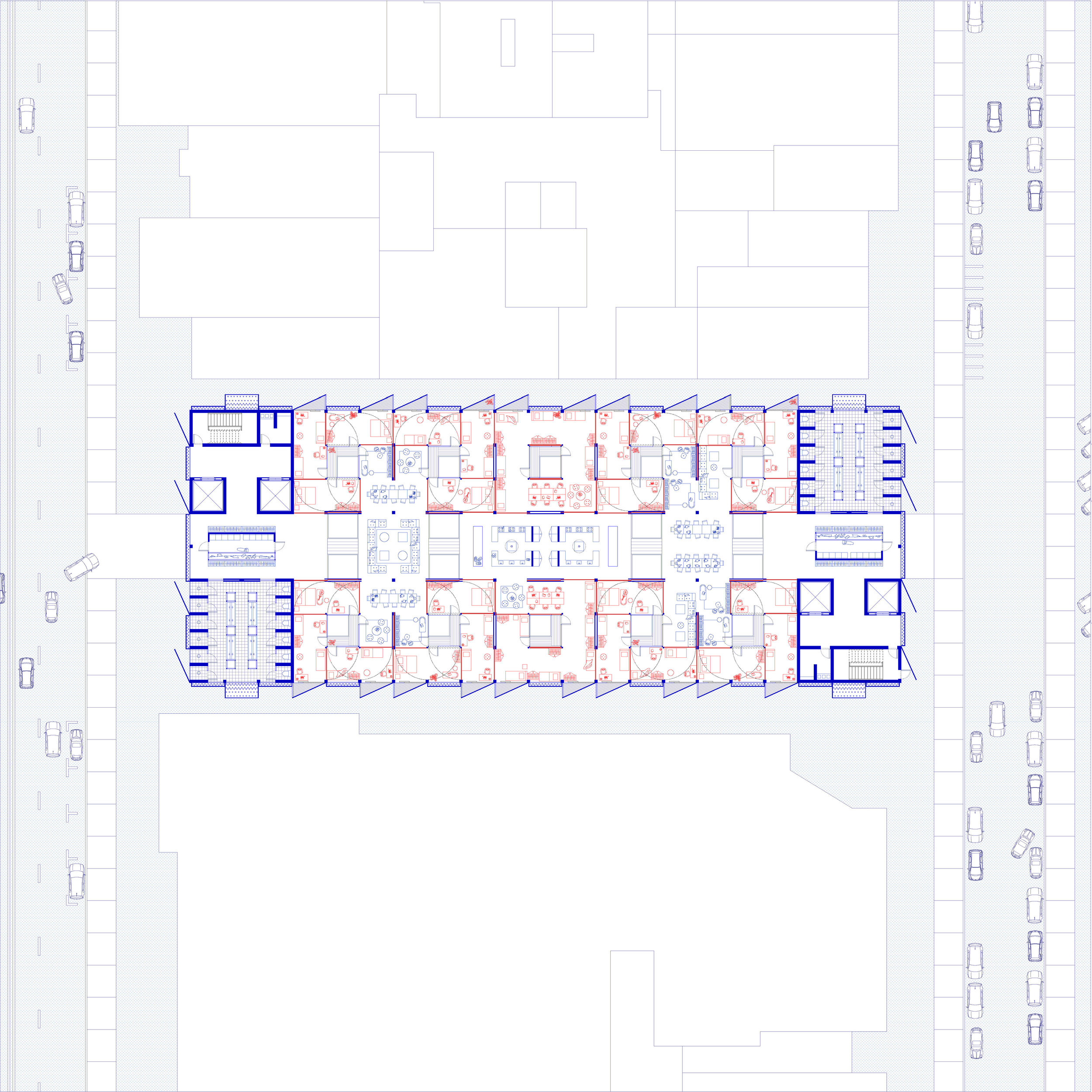Image credit: MAIO, 110 Rooms, Barcelona, Spain
EXPERIMENTS IN COLLECTIVE LIVING FALL 2018
Project: Experiments in Collective Living
Class: Summer Studio, California College of the Arts, Architecture Division
Date: Fall 2018
Instructors: Antje Steinmuller & Cesar Lopez
This studio examines potential new typologies for multi-unit housing inspired by current trends in co-living and the sharing economy, as well as the historic legacy of communal living experiments in Northern California. From Airbnb to Uber, technology is allowing new social and economic relationships to develop outside the institutional models of control, increasingly up-ending traditional power dynamics in the city. These new opportunities for fluid negotiation of resources through time and space are replacing fixed contracts and static urban relationships. Focussing in particular on housing for families in the city, this studio asks: How can architecture structure new ways for us to live collectively and thereby be a political tool?
This fall’s studio will focus on collective living for families. Over the past century, the understanding of family has changed dramatically. Today’s family configurations include single fathers, children being raised by their grandparents, or cohabiting-parents raising blended families that include relationships to other adults (former partners, other children) outside of the household with some children living in two different households on different days or weeks. Recent demographic reports show that young people moving to San Francisco attracted by the tech industry, leave the city as soon as they consider starting a family. While co-living in hacker hostels and intentional communities makes living affordable for young people, maintaining larger homes as a single family household in the city proves too costly for most. San Francisco offers notoriously few options when it comes to dedicated family housing. To counter this, our work this semester will investigate how sharing space, and resources, among families can produce new urban home typologies that are smarter and more communal, increasing the diversity of San Francisco’s housing stock and, ultimately, of its population.
In developing these new typologies, we will consider the following issues:
Economy of Space vs. Program Specificity
Domestic Labor and Gender Equality
Childcare and a Changing Relationship to Work
Multi-generational Households and Spaces for Aging










